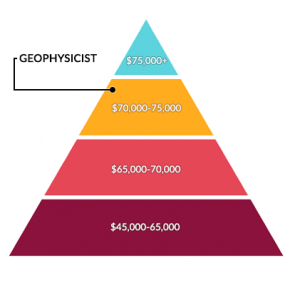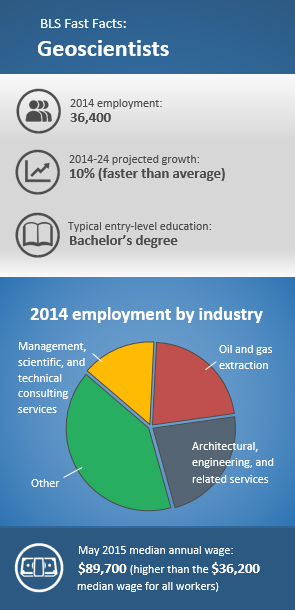All Categories
Featured
Table of Contents
Mining Geophysicist Profile in Singleton Australia 2020

The main design for the radial structure of the interior of the Earth is the initial recommendation Earth design (PREM). Some parts of this design have actually been updated by current findings in mineral physics (see post-perovskite) and supplemented by seismic tomography. The mantle is generally made up of silicates, and the limits between layers of the mantle follow stage shifts.

Schematic of Earth's magnetosphere. Flows from left to.
Inside the magnetosphere, there are reasonably thick regions of solar wind particles called the Van Allen radiation belts. Geophysical measurements are generally at a specific time and location.
Bachelor's Degree In Geophysics - Degrees & Programs in Dalkeith Aus 2023
, combines huge collaborates and the local gravity vector to get geodetic coordinates. This approach just supplies the position in two coordinates and is more difficult to use than GPS.
Relative positions of 2 or more points can be identified using very-long-baseline interferometry. Gravity measurements ended up being part of geodesy due to the fact that they were required to associated measurements at the surface of the Earth to the referral coordinate system. Gravity measurements on land can be made utilizing gravimeters deployed either on the surface area or in helicopter flyovers.
, which are studied through geophysics and space physics.
Geophysical Survey Definition in Myaree Aus 2022

Since geophysics is worried about the shape of the Earth, and by extension the mapping of functions around and in the world, geophysical measurements consist of high precision GPS measurements. These measurements are processed to increase their precision through differential GPS processing. As soon as the geophysical measurements have been processed and inverted, the interpreted outcomes are outlined using GIS.
Numerous geophysics companies have created in-house geophysics programs that pre-date Arc, GIS and Geo, Soft in order to meet the visualization requirements of a geophysical dataset. Expedition geophysics is applied geophysics that frequently uses remote noticing platforms such as; satellites, airplane, ships, boats, rovers, drones, borehole picking up devices, and seismic receivers.
For instance, aeromagnetic information (airplane collected magnetic information) collected using conventional fixed-wing aircraft platforms should be remedied for electro-magnetic eddy currents that are created as the airplane moves through Earth's electromagnetic field. There are also corrections connected to changes in determined possible field intensity as the Earth rotates, as the Earth orbits the Sun, and as the moon orbits the Earth.
Field Geophysicist - Parsons Careers – Engineered Systems in Medina Oz 2021
Signal processing includes the correction of time-series information for undesirable sound or errors presented by the measurement platform, such as airplane vibrations in gravity information. It likewise involves the reduction of sources of sound, such as diurnal corrections in magnetic information. In seismic information, electromagnetic information, and gravity information, processing continues after error corrections to consist of computational geophysics which lead to the final interpretation of the geophysical information into a geological interpretation of the geophysical measurements Geophysics emerged as a separate discipline only in the 19th century, from the crossway of physical geography, geology, astronomy, meteorology, and physics.
The magnetic compass existed in China back as far as the fourth century BC. It was not till great steel needles might be created that compasses were utilized for navigation at sea; prior to that, they could not keep their magnetism long enough to be beneficial.
By looking at which of eight toads had the ball, one might figure out the direction of the earthquake. It was 1571 years before the first style for a seismoscope was published in Europe, by Jean de la Hautefeuille. It was never constructed. Among the publications that marked the beginning of contemporary science was William Gilbert's (1600 ), a report of a series of careful experiments in magnetism.
Hydrographic And Geophysical Surveys in Heathridge Oz 2023
In 1687 Isaac Newton published his, which not only laid the foundations for classical mechanics and gravitation but likewise described a variety of geophysical phenomena such as the tides and the precession of the equinox. The first seismometer, an instrument capable of keeping a continuous record of seismic activity, was built by James Forbes in 1844. Geochemistry, Geophysics, Geosystems. National Aeronautics and Space Administration. Retrieved 13 November 2018.
Runcorn, S.K, (editor-in-chief), 1967, International dictionary of geophysics:. Pergamon, Oxford, 2 volumes, 1,728 pp., 730 fig Geophysics, 1970, Encyclopaedia Britannica, Vol. Introduction to seismology (2nd ed.).
Latest Posts
Geophysical Surveys: Definition & Methods in Forrestdale Oz 2020
Geophysics in Spearwood Australia 2022
Geophysical Survey in Kinross Oz 2022